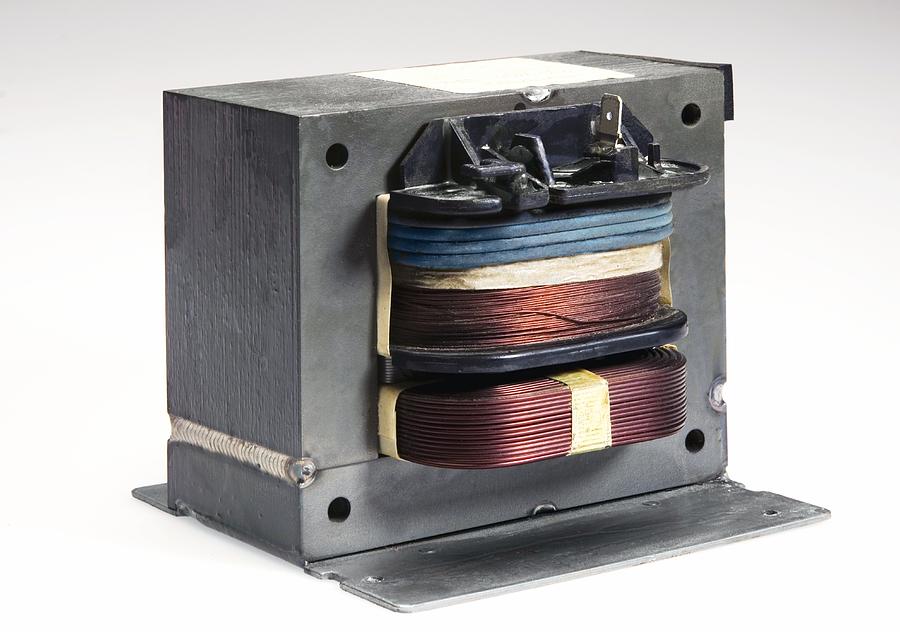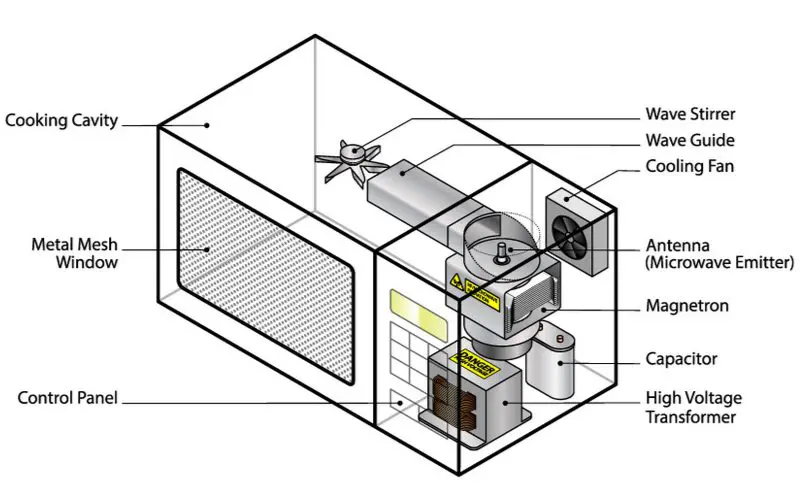Microwave Oven Transformer Working Principle:
Step-up Transformer: The key component in a microwave oven responsible for converting the standard household voltage (110-120V in the US) to the high voltage needed to power the magnetron (typically around 2000-2500V). Here's how it works:
-
Input Side: The transformer takes the 110-120V AC from the mains power supply.
-
Primary Coil: The input voltage is applied to the primary coil, which typically has a larger number of turns compared to the secondary coil. This difference in turns ratio is what allows the transformer to step up the voltage.
-
Core: The magnetic core within the transformer helps transfer the energy more efficiently between the coils.
-
Secondary Coil: The secondary coil, with fewer turns compared to the primary, induces a much higher voltage, typically around 2000-2500V, at the output.
-
High Voltage Output: This high voltage output powers the magnetron, generating microwaves for cooking food.

Common Troubleshooting of Microwave Oven Transformer:
-
No Power: If the microwave oven doesn't turn on at all, it could be due to a faulty transformer. Check for continuity in the primary and secondary windings using a multimeter. Lack of continuity would indicate a burnt-out or open transformer.
-
Low Heating: If the microwave seems to power on but doesn't heat food properly, the magnetron might not be receiving the high voltage it needs. This could indicate a problem with the transformer's ability to step up the voltage.
-
Verifying Output Voltage: You can use a high-voltage probe or a properly rated multimeter to measure the output voltage of the transformer while the oven is running. Be extremely careful while doing this as high voltages are involved.
-
Physical Damage: Inspect the transformer for physical damage such as burnt or charred windings, which could indicate an internal fault.
-
Electrical Short: Look for any electrical shorts within the transformer that might be causing it to malfunction.
-
Replacement: If the transformer is found to be faulty, it's recommended to replace it with an exact match or a compatible replacement to ensure proper functioning and safety.

Always exercise caution when working with high-voltage components like microwave oven transformers. If you're not experienced in handling such components, it's best to seek professional help or consult a qualified technician for troubleshooting and repairs.



